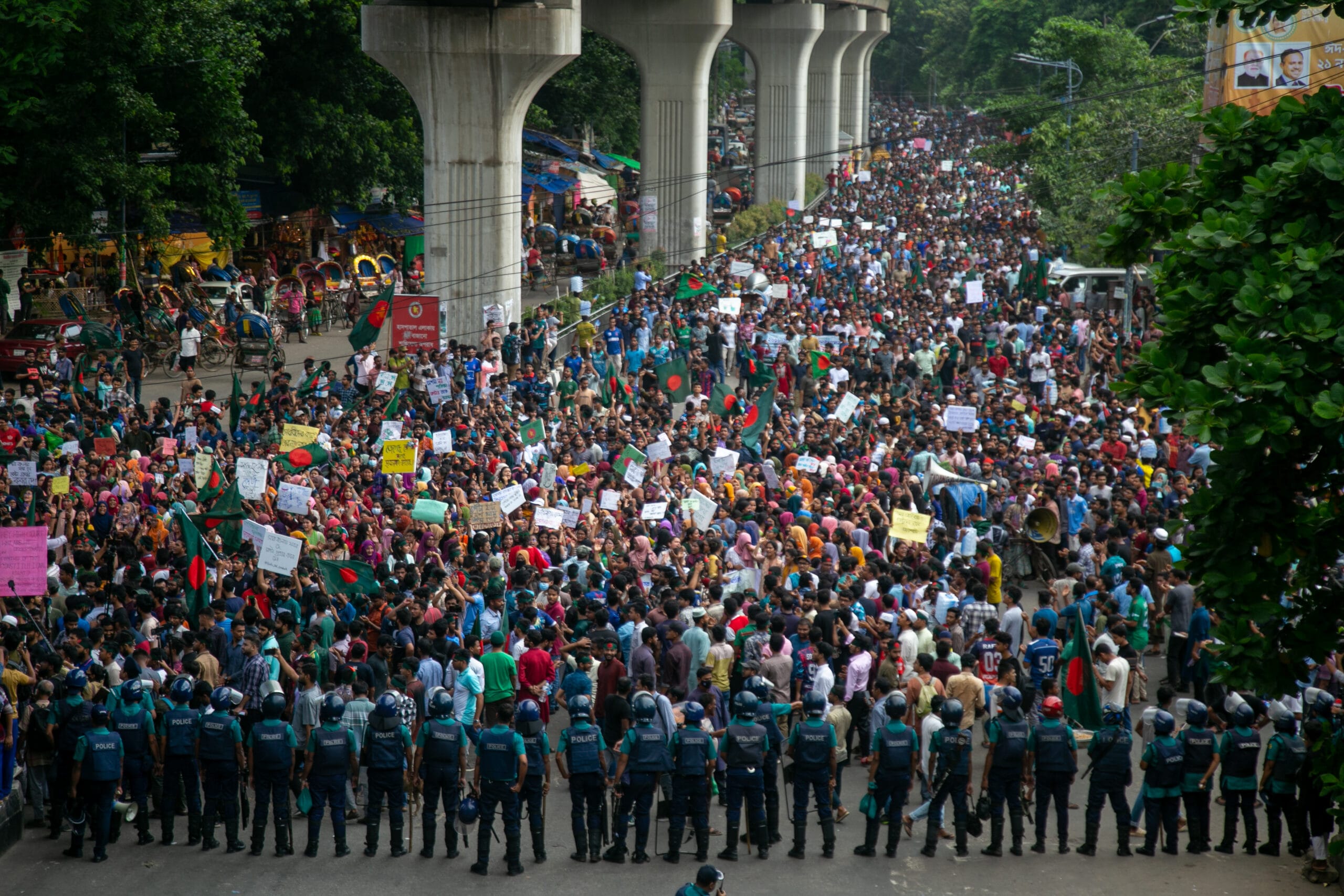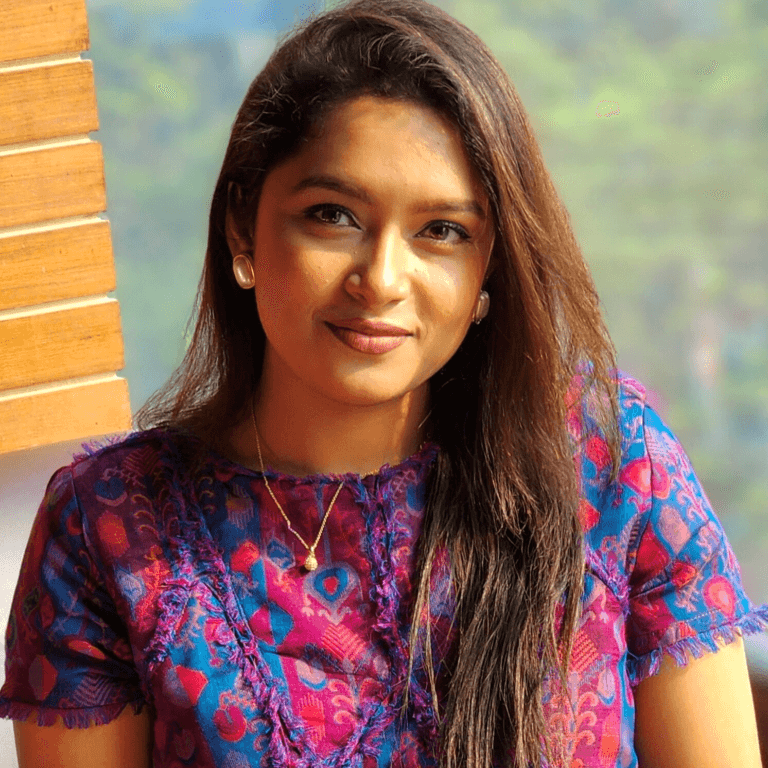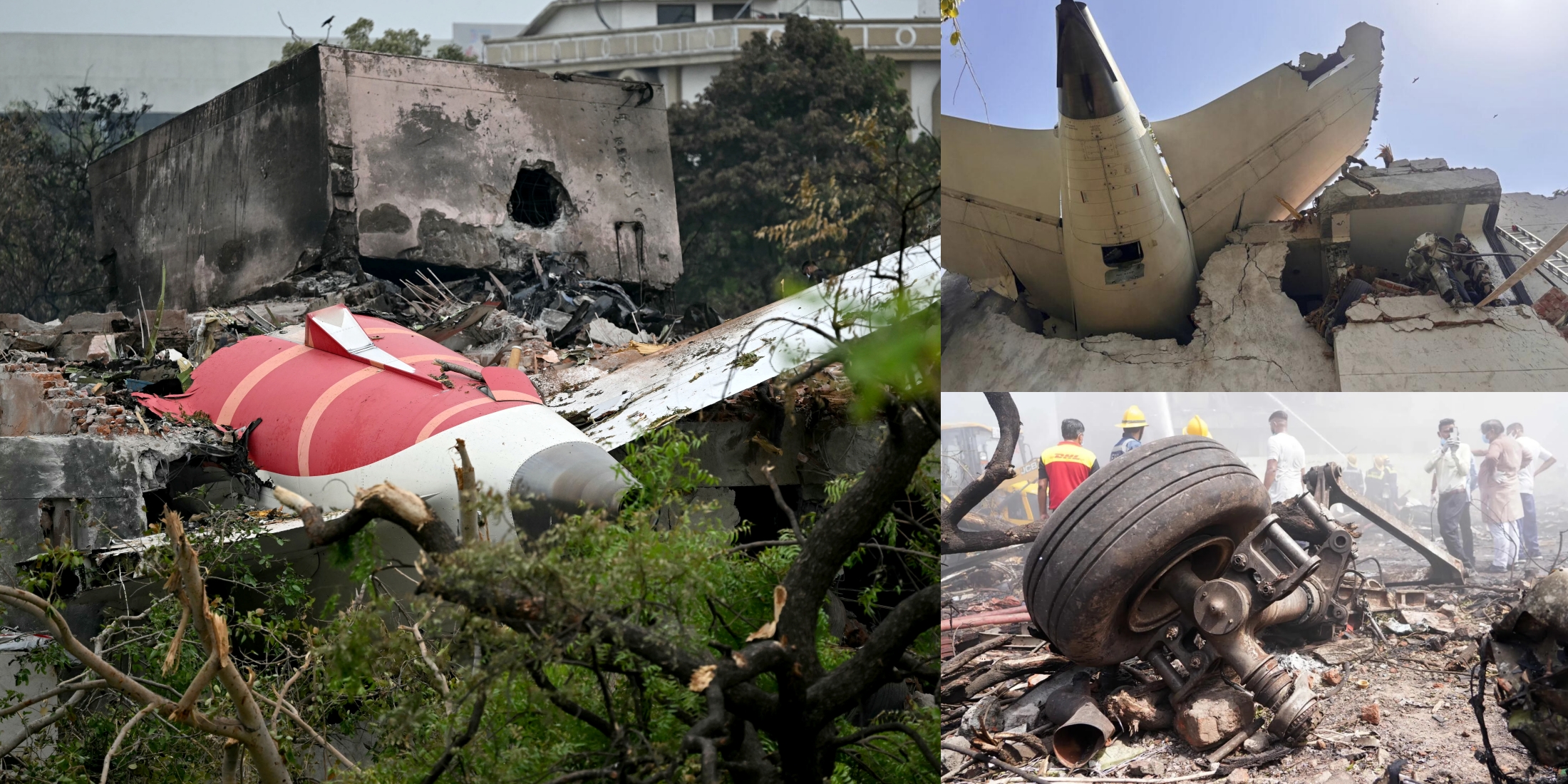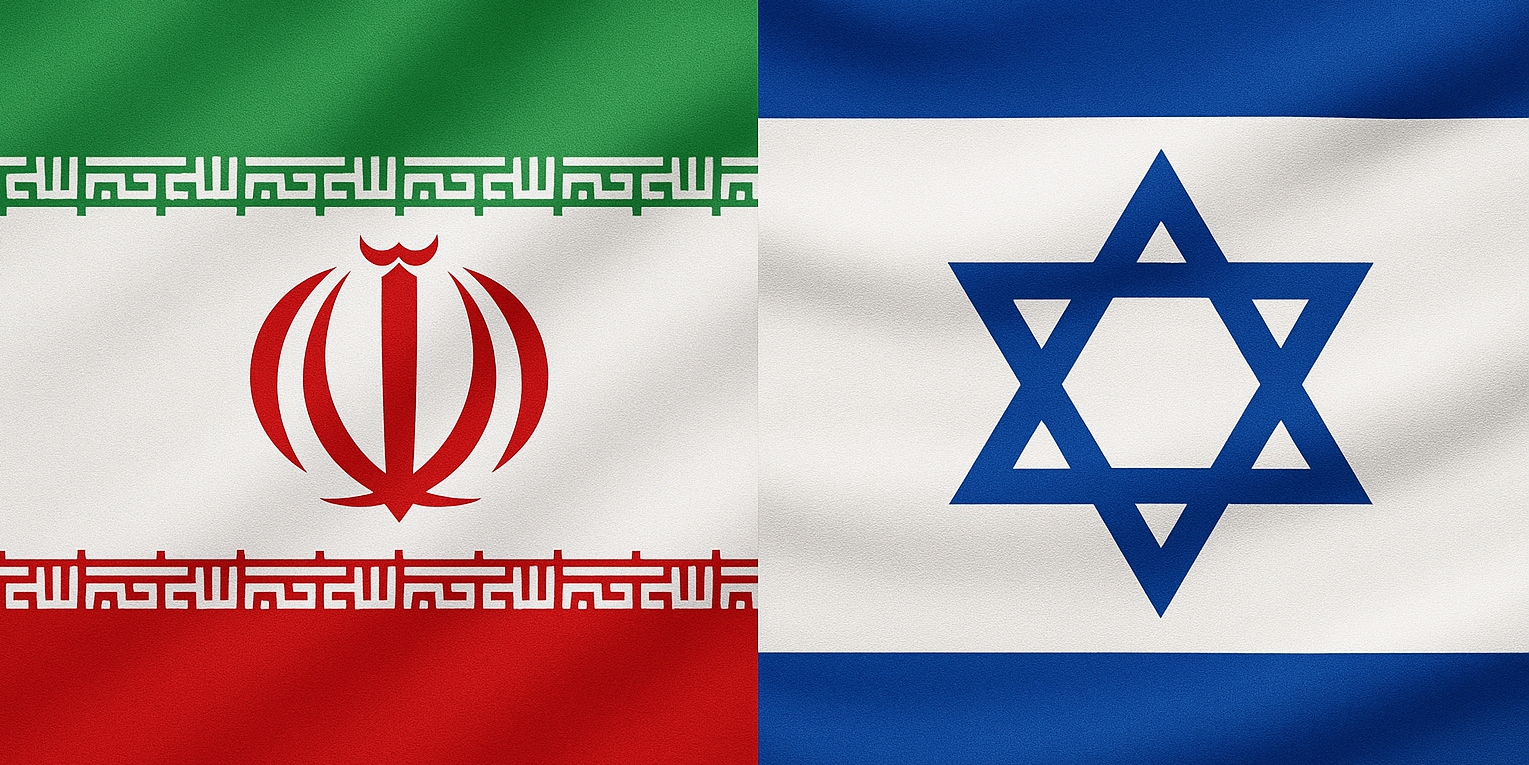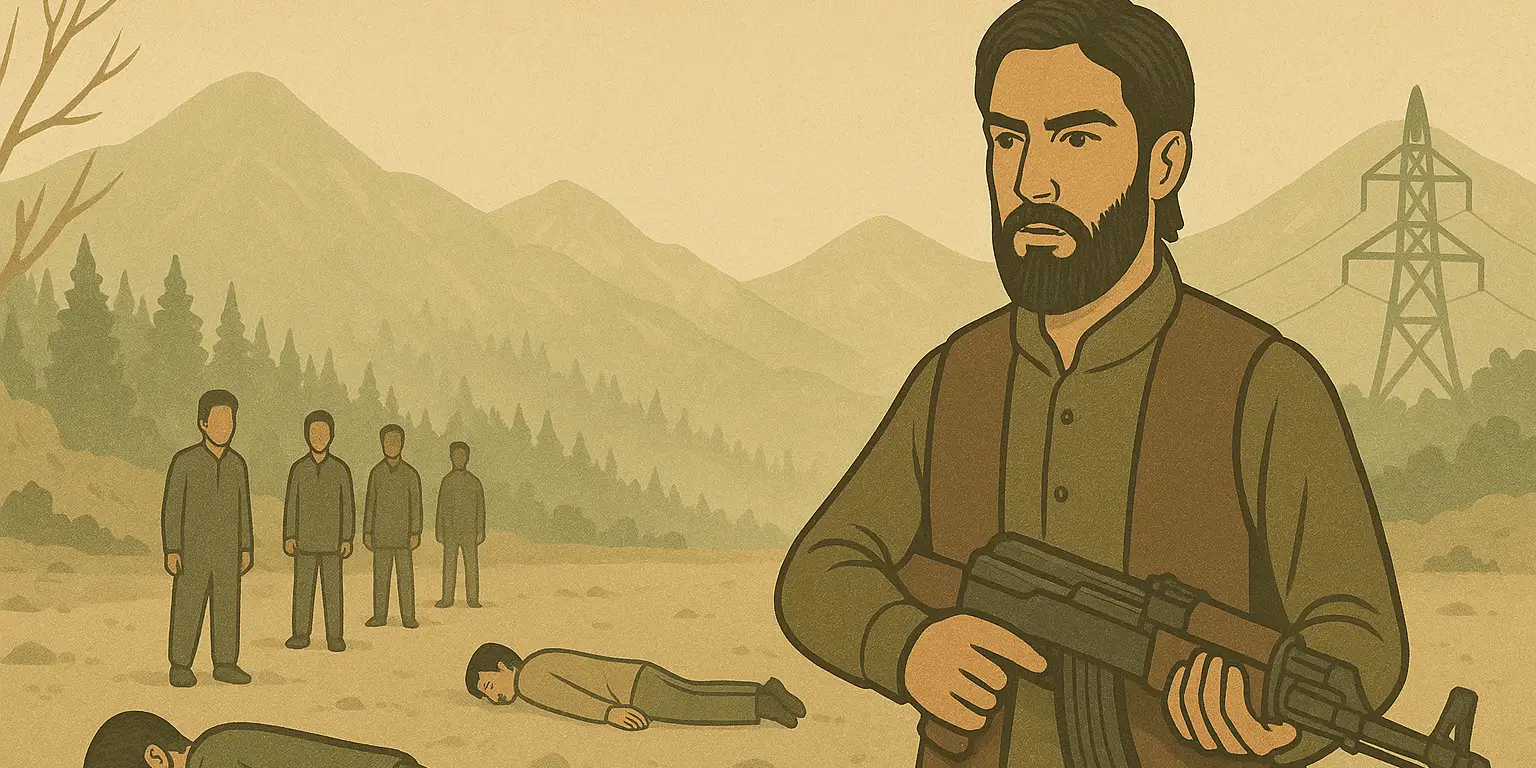Students protesting against the quota system in government jobs organized a new program called “Bangla Blockade”, scheduled to begin at 3 PM on Sunday, July 7.
Nahid Hasan, one of the coordinators of Anti-Discriminatory Student Movement, on behalf of the students across Bangladesh, announced a nationwide Bangla Blockade program demanding a fair recruitment system and the reform of an unreasonable quota system in all grades of government jobs. Early on the first day of their “Bangla Blockade” program, anti-quota student protesters from various universities and colleges blocked traffic movement by staging demonstrations at numerous important intersections in the capital, including Shahbagh, Nilkhet, Science Lab, and Banglamotor. The protesters also blocked major highways and other intersections for several hours.
“Our one-point demand is that the illogical quotas in all grades of government jobs should be abolished through enacting a law in parliament,” said Hasnat Abdullah, voicing the primary demand that sparked the protests. In Dhaka and other cities, protesters assembled at significant spots, waving banners to demand justice.
A procession started at University of Dhaka (DU) around 3:20 PM at Shahbagh. Hundreds of students gathered in front of the DU Central Library around 3:00 PM and started moving through several campus streets. The protest lasted four hours, with the area remaining occupied until 8:00 PM. Students of the University of Dhaka, extended their march toward Shahbag through the Raju Memorial Sculpture in TSC. The blockade reflected a spirit of protest and unity, as students sang patriotic songs and chanted anti-quota slogans.
Police officers put a barrier in front of the Shahbagh metro rail station to stop the protesters from moving further. However, a faction of protesters managed to break through the barricade and move toward Minto Road, continuing to block the intersections around Hotel Intercontinental, Soanrgaon and Banglamotor. Protesters, at one point, took positions in front of Rajasik Bhaskarjya, near Paribag.
Nahid Islam, at the end of 7th July’s “Bangla Blockade” initiative, declared the continuation of the protests, saying, “Today we went from Shahbag to Karwan Bazar, and tomorrow we will go till Farmgate. If our demands are not met, our efforts will intensify further.”
Meanwhile, students from Dhaka College and Eden College blocked the Science Lab and Nilkhet intersections, around 1:40 PM and 3.00 PM respectively. The coordinated efforts of these 2 colleges disrupted traffic movement in two of Dhaka’s busiest areas. By 7:00 PM, protesters began returning to Shahbagh after temporarily lifting blockades at key intersections.
Earlier on the day, hundreds of Jahangirnagar University students assembled near the Shaheed Minar at 10:30 AM, rallying under the banner of “Anti-Discriminatory Students’ Movement”. Also, students from all 36 departments have boycotted exams and classes. They blocked the Dhaka–Aricha Highway from 11:00 AM to 1:00 PM, expressing the anger and frustration among students.
Plus, students of Cumilla University blocked the Dhaka-Chattogram highway at around 4:00 PM and Rajshahi University students’ movements took place on Paris Road around 3:30 PM. Simultaneously, in Khulna, a rally of students was assembled at Shibbari intersection from 6:00 PM to 7:00 PM, spreading the protest to the south.
In response, the General Secretary of Awami League, Obaidul Quader says the government is ‘observing’ the protests by students and job seekers against quotas in government jobs. “The government is deeply analysing the situation of teachers and students protesting. They are connected with the teachers. They will give a solution on time,” said Obaidul Quader. However, students remained unconvinced and decided to continue their demonstrations.
Sarjis Alam critically replied to the Prime Minister’s call for students to return to their studies by saying, “You can bring one of your favourite books, dry food, and one litre of normal water.”
The protests reflected the voices of the students’ solidarity with the national movement. At the end of Sunday’s “Bangla Blockade” programme, coordinators of the movement, announced that they will continue the protests with one-point demand from 8th July.

